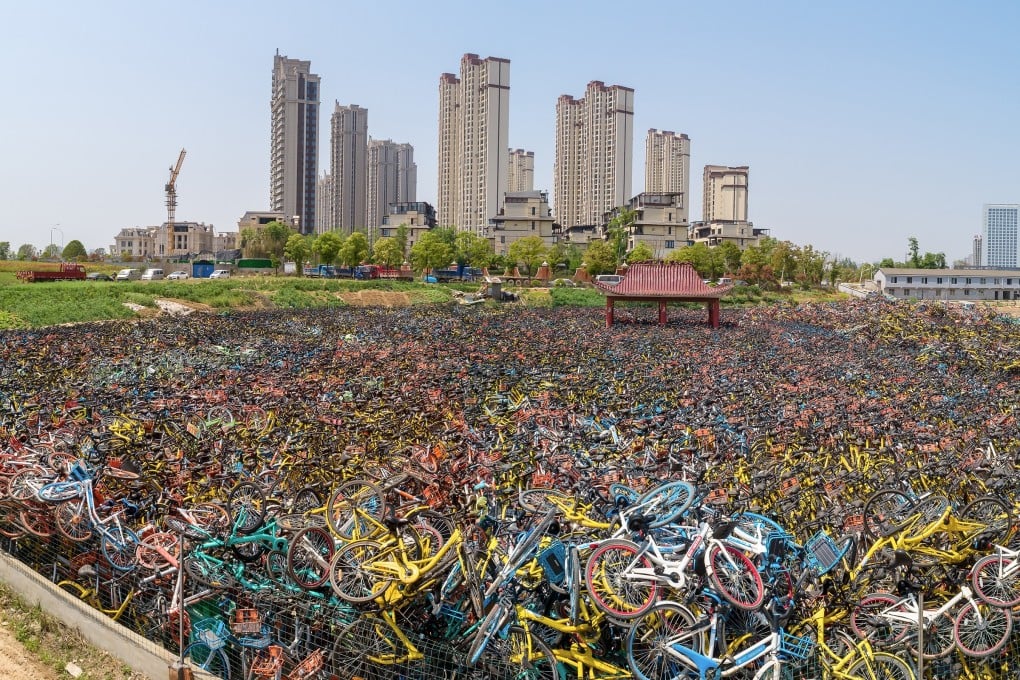Advertisement
What happens to discarded bikes from China’s sharing boom? Taxpayers pay to clear 25 million of them from bicycle graveyards
- Almost every major city in China had a ‘bicycle graveyard’, where hundreds of thousands of disused bicycles were stacked up after their operators went bankrupt
- The pathway from street corners to disassembly mills is filled with legal entanglement between local governments, bike companies, and recycle factories
Reading Time:4 minutes
Why you can trust SCMP

Three years after China’s blooming bike-sharing economy wilted, local authorities are about to send the last of 25 million abandoned bicycles to recycling plants, pruning the remaining blight on cityscapes left behind by dozens of companies that have gone bust.
All the disused bicycles must be scrapped by the year’s end under a compulsory retirement scheme imposed by city councils to ensure safety. The costs of taking them off the streets and the bicycle graveyards are borne by taxpayers, as all but three remain from a crop of as many as 70 bike-sharing companies, each plying China’s streets with a different brightly coloured vehicle.
“Most bicycle graveyards have already gone,” said Wu Guoyong, a Shenzhen photographer who made a name for himself by using aerial drones to shoot dramatic pictures of abandoned bicycles piled into little mountains in almost every major city in China. One such dumping site in the Fujian provincial city of Xiamen, once the largest of its kind with more than 200,000 rusting vehicles, is now a gigantic construction pit where new buildings are due to be erected soon, he said after a visit in May.
Advertisement
The massive clean-up closes the book on one of the country’s more quirky technological phenomena: the bike-sharing bubble that came from zero to a peak and a rapid deflation, all within four years. The boom-to-bust cycle burned up tens of billions of dollars of investments, turned several tech entrepreneurs into billionaires, but also passed the associated environmental and clean-up cost to society at large.

Advertisement
China’s bike-sharing craze began in late 2014 when five members of Peking University’s cycling club grafted the idea of rental bicycles – similar to London’s ‘Boris Bikes’ and the Citibikes on New York streets – on to the country’s ubiquitous smartphone-driven internet economy.
Advertisement
Select Voice
Choose your listening speed
Get through articles 2x faster
1.25x
250 WPM
Slow
Average
Fast
1.25x